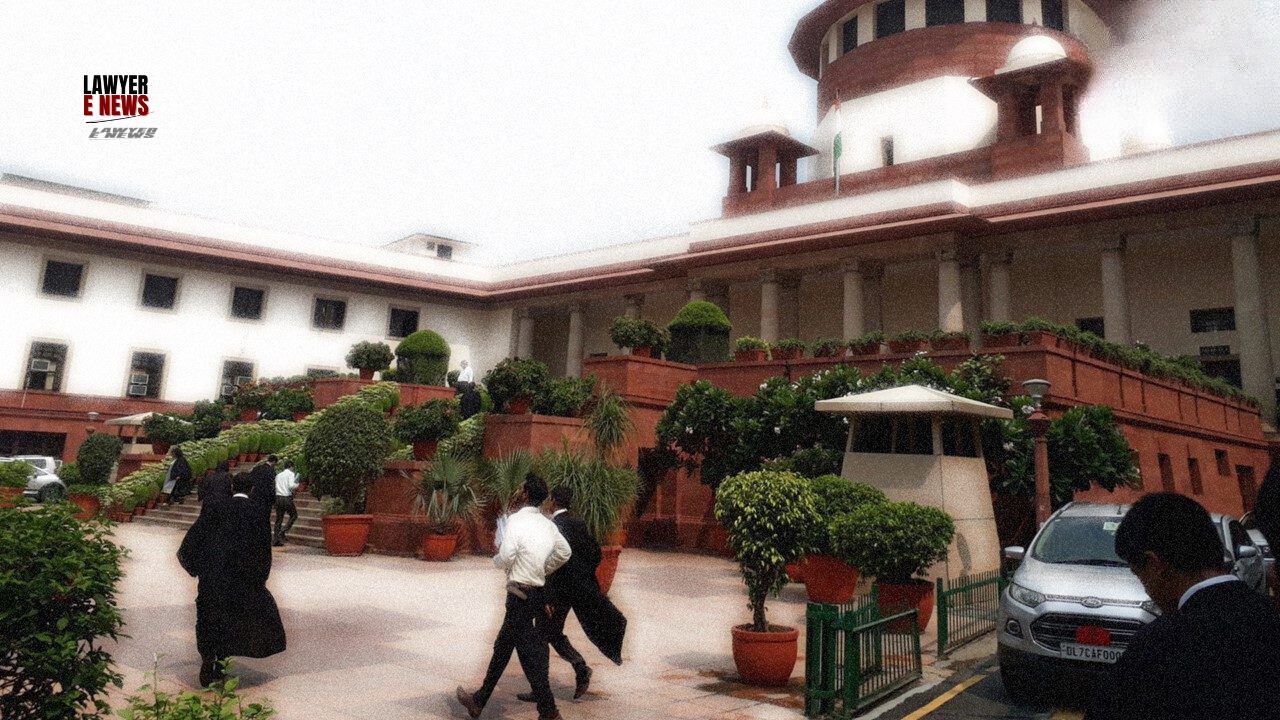-
by Admin
15 February 2026 5:35 AM



In a significant decision on January 9, 2025, the Supreme Court of India invoked its plenary powers under Article 142 of the Constitution to dissolve the marriage of Unmesha Rout (Petitioner) and Nishant Panwar (Respondent). The Court ensured an amicable resolution of all disputes between the estranged couple, quashing multiple pending litigations in light of a mutual settlement reached by the parties.
The Supreme Court, using its extraordinary powers under Article 142, dissolved the marriage solemnized on February 14, 2021, in Bhubaneswar, Odisha. The dissolution was based on the parties' agreement to settle their disputes, with the respondent-husband paying ₹25 lakhs to the petitioner-wife as a full and final settlement.
An FIR alleging cruelty, dowry harassment, and other criminal charges under Sections 498A, 307, 394 of the IPC, and the Dowry Prohibition Act, 1961.
The respondent-husband handed over ₹25 lakhs to the petitioner-wife as a full and final settlement—₹5 lakhs had been paid earlier, and the balance ₹20 lakhs was given in court on the date of the final hearing.
Transfer Petition Disposed of as Infructuous:
The petition filed by the wife to transfer the Restitution of Conjugal Rights proceedings from Shamli, Uttar Pradesh, to Bhubaneswar, Odisha, was rendered infructuous due to the amicable settlement.
The petitioner-wife, Unmesha Rout, had filed a Transfer Petition under Section 25 of the Code of Civil Procedure (CPC), seeking to transfer a Restitution of Conjugal Rights case (filed by the respondent-husband under Section 9 of the Hindu Marriage Act) from Shamli, Uttar Pradesh, to her hometown in Bhubaneswar, Odisha.
While the case was pending, the parties were referred to mediation by the Supreme Court. Although initial attempts at mediation failed, the Court facilitated direct negotiations between the parties, leading to an agreement to settle the matter amicably.
The Supreme Court bench comprising Justice Pamidighantam Sri Narasimha and Justice Manoj Misra noted the following:
Matrimonial disputes often drag on for years, causing emotional distress to the parties involved. The Court emphasized the need for finality in such matters, especially when the parties mutually agree to settle their differences.
“Prolonged litigation only serves to exacerbate hostility and stress, which should be avoided at all costs, particularly in personal matters.”
The Court invoked Article 142 of the Constitution, which allows it to pass orders necessary for rendering complete justice in any matter before it. The bench stated:
“This is a fit case for exercising powers under Article 142 to dissolve the marriage and quash all pending litigations, ensuring peace and closure for the parties.
The Court observed that the settlement between the parties was comprehensive and left no room for future disputes. The ₹25 lakh settlement amount, paid in full, was accepted by the petitioner-wife as a complete resolution of all her claims.
The marriage between Unmesha Rout and Nishant Panwar was dissolved by a decree of divorce by mutual consent under Article 142.
All pending litigations between the parties were quashed, ensuring a complete closure of disputes.
The Court directed the Registry to draw a decree in terms of the settlement.
The decision showcases the Supreme Court’s proactive approach in resolving matrimonial disputes through mutual settlement. It reinforces the principle that litigation should not become an unending process and highlights the Court’s willingness to use its plenary powers under Article 142 to deliver complete justice.
The Supreme Court’s ruling brings an end to the contentious disputes between Unmesha Rout and Nishant Panwar. By dissolving the marriage and quashing all pending cases, the Court has ensured that the parties can move forward with their lives free from the burden of prolonged litigation.
Date of decision : January 9, 2025
